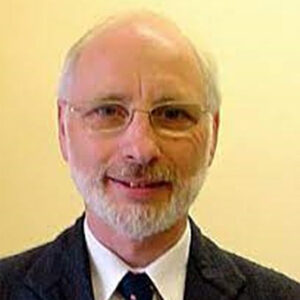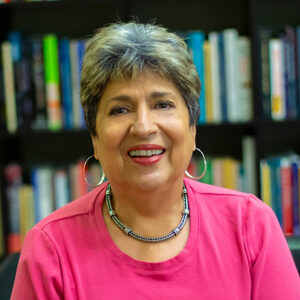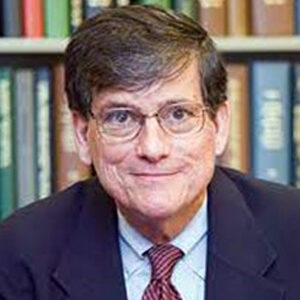Making plurilingual/pluricultural education accessible: International perspectives

Keynotes by:
Organizing Committee:
Scientific Committee:
The basic assumption behind plurilingualism is that individual language components are “uneven, differentiated according to the learner’s experience and in an unstable relation as that experience changes” (CEFR 2001: 34). Plurilinguals are assumed to have the ability to call flexibly upon their repertoire and e.g., switch from one language, dialect, or variety to another, call upon the knowledge of several languages (or dialects, or varieties) to make sense of a text or experiment with alternative forms of expression (CEFR Companion Volume 2020: 30). The fluidity with which various language components interact is believed to promote the development of linguistic and cultural awareness, and to contribute to global understanding and acceptance of diversity. It is also interwoven with the concept of pluriculturalism – an approach that perceives individuals as complex beings shaped by multiple cultural experiences and identifications.
Yet, with languages (and their cultural contexts) being taught in isolation, compartmentalized institutionalized education often leaves little room for a plurilingual approach. This is problematic as monolingual teaching: a) fails to do justice to the complex reality of learners’ linguistic/cultural repertoires (Blommaert & Backus 2011), and b) creates “limitations in terms both of learning capacity and space in the curriculum” (FREPA 2012: 8). In the European context, this e.g., stands in the way of the Barcelona Summit (2002) “mother tongue + 2” objective. At the same time, there is ample evidence to support the notion that adopting plurilingualism can be a challenge for teachers. As Helot and Ó Laoire (2011, xi) put it: “teachers in the multilingual classroom may continue to underestimate the competence of plurilingual students and to silence their voices, rather than using cross-linguistic learning strategies and learners’ metalinguistic awareness as learning resources across languages and even across school disciplines.”
The conference, associated with the project TEACUP (teacup-project.eu), will focus on the challenges and opportunities associated with the adoption of the plurilingual approach and on the measures that could be undertaken to make it more accessible. We welcome empirical, theoretical, and practice-based contributions that address but are not limited to the following questions:
The aim of the conference is to engage interested colleagues in fruitful discussions in which they can share their reflections, experiences, perspectives, and insights. Participation is free of charge.
Conference Formats:
Proposals for contributions should be submitted by 31.05.22 and contain the following:
Proposals will be blind reviewed by members of the Scientific Committee. The presenters will receive a note of acceptance by 15.06.22. Selected papers will be published in a peer reviewed compilation (UCOPress, indexed in SPI, and/or Peter Lang).
References:
Blommaert, J., & Backus, A. (2011). Repertoires revisited: ‘Knowing language’ in superdiversity. Working Papers in Urban Language and Literacies 67, 1–26.
Council of Europe (2020). Common European Framework of Reference for Languages: Learning, teaching, assessment – Companion volume, Council of Europe Publishing, Strasbourg, available at www.coe.int/lang-cefr
Council of Europe. (2001). Common European framework of reference for languages: Learning, teaching, assessment. Cambridge, UK: Press Syndicate of the University of Cambridge.
European Centre for Modern Languages. (2012). FREPA: A framework of reference for pluralistic approaches to languages and cultures: competences and resources.
Hélot, C. & Ó Laoire, M. (2011). Language Policy for the Multilingual Classroom: Pedagogy of the Possible. Bristol, Blue Ridge Summit: Multilingual Matters. https://doi.org/10.21832/9781847693686
Plenary Information:

Should we teach values in Intercultural Language teaching?
Michael Byram
Durham University
Abstract:
In my model of teaching intercultural competence in language teaching, I have one competence (‘critical cultural awareness’) which is ‘value-free’. I do not suggest which specific values should be taught but only that students should learn to question and analyse values – their own and other people’s.
An alternative is to include specific values which students should learn. Values include being ‘open’ and curious about other ways of life and being willing to suspend judgement whilst discovering more about them. This general value is also part of my model.
Values can however also be specific such as valuing human dignity, human rights, cultural diversity, the rule of law etc. I do not include these in my model.
In this lecture I shall discuss these questions by describing and analysing events in a classroom in Algeria where students were learning English and developing their intercultural competence. On this basis I will raise more general questions which all teachers including language teachers should think about.

Leveraging all children’s languaging in their education
Ofelia García
The Graduate Center, City University of New York
Throughout the world, educational programs and curricula abound that purport to provide a plurilingual/pluricultural education. However, these programs, whether labeled bilingual/plurilingual education or CLIL or foreign/world/second language education are often not inclusive of the linguistic practices of the children who populate these classrooms. Three cases around the world are considered that show how many multilingual education programs fail minoritized children: Latinx children in U.S. bilingual classrooms, tribal Indian children in multilingual education programs in the province of Orissa, South African children in mother-tongue classrooms in Johannesburg. I end by showing how translanguaging pedagogical practices may open spaces in which to leverage the children’s dynamic practices, making it accessible to all and inclusive of all.

Developing a critical intercultural perspective in language learning
Anthony Liddicoat
University of Warwick
Intercultural language teaching and learning is one manifestation of the critical turn in language education. Its critical dimension is characterised by a strong emphasis on self-reflexivity in both teaching and learning, and by a transformational agenda for language education (Liddicoat & Scarino, 2013). Within language education, the critical project requires that the focus of language learning is to develop social actors capable of using language repertoires in ways that provide for agency both over language (in the choices they make about how to use their language resources) and through language (in the social possibilities they realise for themselves through their language repertoires). Within such a view of education, critical reflection comes to play an important role. To consider language education in such a way requires reconceptualising some of the fundamental starting assumptions of language education, which provides a basis for creating new emphases in both theory and practice. This presentation begins by examining the nature of this reconceptualisation and then examines the consequences of such reconceptualising for teaching and learning. It examines one particular area of language – pragmatics – to exemplify the forms of learning involved in this manifestation of the critical turn in language education. Finally, it examines the role of reflection in learning pragmatics and its contribution to developing a critical perspective on language and culture.

A sketch of the linguistic foundations of translanguaging
Ricardo Otheguy
City University of New York
The purpose of the talk is to offer a brief sketch of the theoretical foundations of the notion of translanguaging in linguistics and related areas. The usage practices of speakers and the pedagogical practices of teachers that go under the term rely on, and are nourished by, a particular understanding of the representation of the linguistic competence of bilinguals. The understanding offered by the translanguaging approach goes under the name of unitary competence, set off against the familiar understanding, called here dual competence. A simplified summary of what is meant by the unitary competence of bilinguals notes that the prefix bi- in the word bilingual can only be understood as a social, not a cognitive reference.
Scholars in linguistics have repeatedly made the point that the terms for named languages such as Arabic, Bulgarian, English, Spanish, etc. are superfluous and unnecessary for lexical and grammatical analysis (even though, perversely, most of us continue to include named languages in the titles of our publications). The roots of the confusion lie in Ferdinand de Saussure’s unfortunate decision to use the same term, langue, for both the sociopolitical and the cognitive entities, a problem only partially solved by Roy Harris’ translation of the former sense into English as language and the latter sense as the linguistic system.
Scholars in anthropology and the sociology of language have stressed the unfortunate aspects of the confusion of language the system and language the sociopolitical entity, and have noted the Western roots of the belief in discrete named languages (and the colonial gains derived from this belief). For their part, scholars in psycholinguistics have met with limited success and persistent counter evidence when bilingual experiments begin under the a priori assumption that named languages can be promoted to the status of cognitive realities.
Finally, and following the familiar pattern of wishing away inconvenient empirical evidence by giving it a name, the primary datum against the dual conception of the linguistic representation of bilinguals is wished away by calling it code-switching.
To conclude, a brief account will be given of the attempt to understand under a theory of unitary competence such familiar bilingual phenomena as are described under the rubric of language contact.
Proposals for contributions should be submitted by 31.05.22
Only for attendants